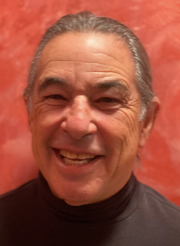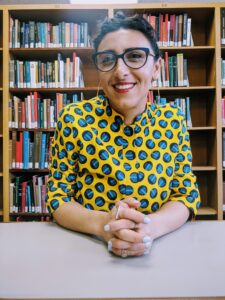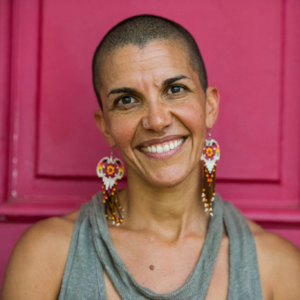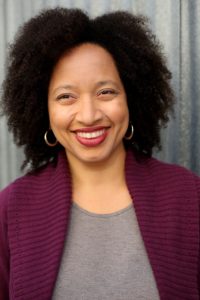Maternal Health: What’s Changed And What The Future Holds

Listen now to About Health (7/8/24) on KPFA.org 94.1FM
https://archives.kpfa.org/data/20240708-Mon1400.mp3
We discussed the many major issues people face related to pre-natal care, pregnancy, abortion, mental health, birth, c-sections, and postpartum complications. Racial disparities exist and Black women are three times more likely to die from a pregnancy-related cause than White women. There are many factors that contribute to these disparities, such as the quality in healthcare, any underlying chronic conditions, racism, and implicit bias. We will talk about some of the social determinants of health, and what can be done to reduce infant and maternal illness and death.
Guest:
Amanda P. Williams, MD, MPH, FACOG is the Clinical Innovation Advisor with the California Maternal Quality Care Collaborative (CMQCC) based at Stanford University School of Medicine where she also is an adjunct faculty member in the Department of Obstetrics and Gynecology. In Spring 2024, Dr. Williams founded Poplar Lane Advisors LLC to create a platform to support startup companies and non profit organizations navigating the world of maternal health equity.
Dr. Williams previously served as Medical Director at Mahmee, a tech-enabled maternal health company dedicated to improving health equity and empowering families with wraparound care during the pregnancy and postpartum period. In this role she oversaw the company’s clinical programming, while fostering institutional partnerships, developing new business opportunities and supporting investor outreach.
Prior to joining Mahmee, Dr. Williams was a practicing OBGYN at Kaiser Permanente Oakland Medical Center where she served as Director of Maternity Services. Additionally, she oversaw the maternity continuum across Kaiser’s 15 medical centers in Northern California. She has also served on several state and national committees, such as the California Pregnancy-Associated Mortality Review, the California Surgeon General’s perinatal redesign stakeholder group, and the National Quality Forum Maternal Morbidity and Mortality work group.
Dr. Williams is a Magna Cum Laude graduate of Harvard University. She completed her medical degree at Emory University School of Medicine where she also received a master’s degree in public health. She completed her graduate medical training in Obstetrics and Gynecology at The University of California, San Francisco. Dr. Williams is a prominent voice on maternal health and health equity.

 Dr. Jeff Ritterman is a retired cardiologist from Kaiser Richmond where he worked for 29 years. He was also a Professor and Clinical Coordinator for the Physician Assistant Program at Touro University and worked for three years doing Adult Primary Care at Lifelong Medical in San Pablo. He is on the Board of Directors of San Francisco Physicians for Social Responsibility and served on the Richmond City Council when they introduced the first municipal Soda Tax. In the 1980s he helped start the Salvador Medical Relief Fund and the Committee for Health Rights in Central America. He personally delivered medical supplies to Salvador Refugees in Honduras and Costa Rica. In the 1990s he started the Southern Africa Medical Aid Fund and delivered medical supplies to the African National Congress’s Clinic in Lusaka, Zambia. He has helped start two Racial Equity Book Clubs, one with Kaiser Oakland and the other with San Francisco Physicians for Social Responsibility. He is the author of two recent papers on combating Medical Racism.You can read one of them here:
Dr. Jeff Ritterman is a retired cardiologist from Kaiser Richmond where he worked for 29 years. He was also a Professor and Clinical Coordinator for the Physician Assistant Program at Touro University and worked for three years doing Adult Primary Care at Lifelong Medical in San Pablo. He is on the Board of Directors of San Francisco Physicians for Social Responsibility and served on the Richmond City Council when they introduced the first municipal Soda Tax. In the 1980s he helped start the Salvador Medical Relief Fund and the Committee for Health Rights in Central America. He personally delivered medical supplies to Salvador Refugees in Honduras and Costa Rica. In the 1990s he started the Southern Africa Medical Aid Fund and delivered medical supplies to the African National Congress’s Clinic in Lusaka, Zambia. He has helped start two Racial Equity Book Clubs, one with Kaiser Oakland and the other with San Francisco Physicians for Social Responsibility. He is the author of two recent papers on combating Medical Racism.You can read one of them here: 



 “Of all the forms of inequality, injustice
“Of all the forms of inequality, injustice